Rights Breached, Responsibilities Neglected: How the My Lai Massacre Exposed the Ethical Issues of the Vietnam War
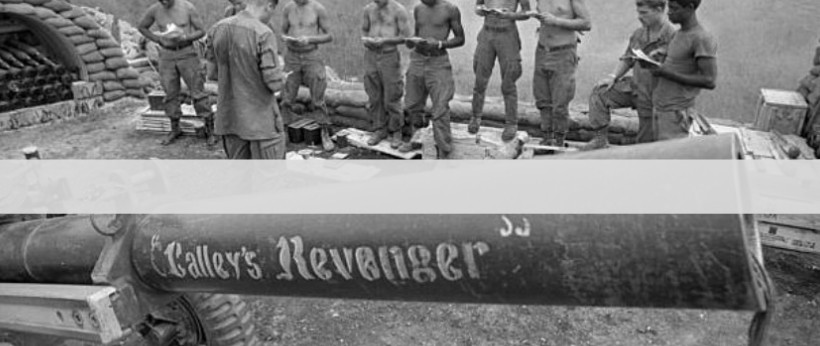
Reactions to Trial Results
"Church Service at a Firebase. The text on the gun refers to Lt. Calley, who was tried and convicted for the My Lai massacre." Getty Images/Bettman Archive
“There was a change in the public attitude, and now they say ‘wait a minute you shouldn’t be prosecuting soldiers for just carrying out their duties. All of a sudden the public sentiment had swung the other direction, and when Calley’s conviction and sentence was announced, there was an outcry.”
-General Kenneth Hodson, former U.S. Army Chief Prosecutor
Public outrage over the trial resulted in the "Free Calley" movement, which painted Calley as the scapegoat for the massacre.

Red, white, and blue bumper sticker, with a stylized US flag and soldier in the upper left corner and the pro-war message "Free Calley, " demanding the release of Second Lieutenant William Laws Calley, 1970." Stuart Lutz / Gado / Getty Images
"Calley Trials" Famous Trials - UMKC School of Law / Youtube
“What we can’t understand, first place, him going in there and thinking, ‘well I’m gonna go in there and I’m gonna kill all these people’? A person just doesn’t do that! Especially alone! And, it’s not real, cause where did he get his orders in the first place? And the people behind him, what were they doing? Just standing there looking at him?"
-Dawn Calley, sister of William Calley, interview statement, 24 Nov. 1969
Many believed he shouldn't have been charged at all, while others argued he shouldn't have been held accountable over his commanders.
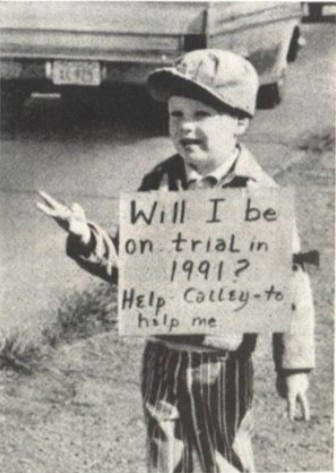
"Young Demonstrator In Oklahoma City" TIME Magazine, April 12, 1971, Vol. 97, No. 15, Pg 19
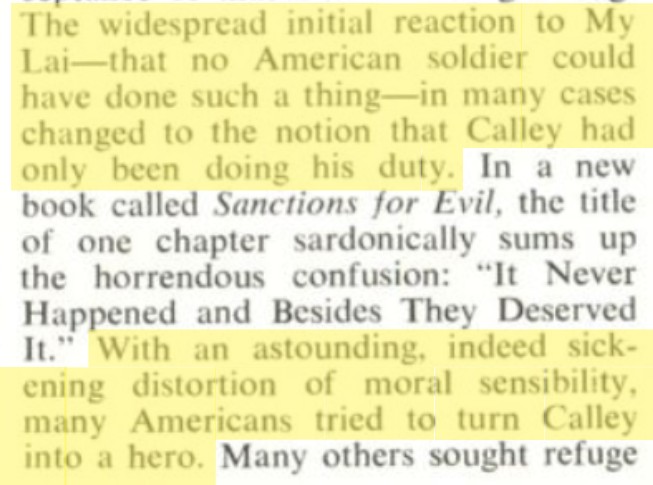
TIME Magazine, April 12, 1971, Vol. 97, No. 15, Pg 14
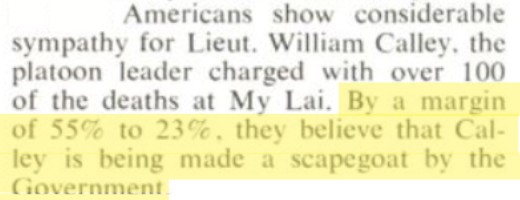
TIME Magazine, Jan. 12, 1970, Vol 95, No. 2, Pg. 11
“Calley is really no more at fault than anyone else there: he shouldn’t have been an officer, he shouldn’t have been sent to fight a war he could not comprehend, he shouldn’t have known the body count as the only standard of success, and he shouldn’t be on trial any more than the higher-ranking officers who did nothing about the slaughter afterwards, thus inducing that many more killings. Perhaps there is even less reason to try Calley than the top brass at the Pentagon, or maybe an American president or two, or three. Perhaps you and me should be on trial for not doing more to stop the war.”
-Investigative Journalist Seymour Hersh, in a letter to his editor
However, all were furious over the failure to prosecute any higher-ranking officers.
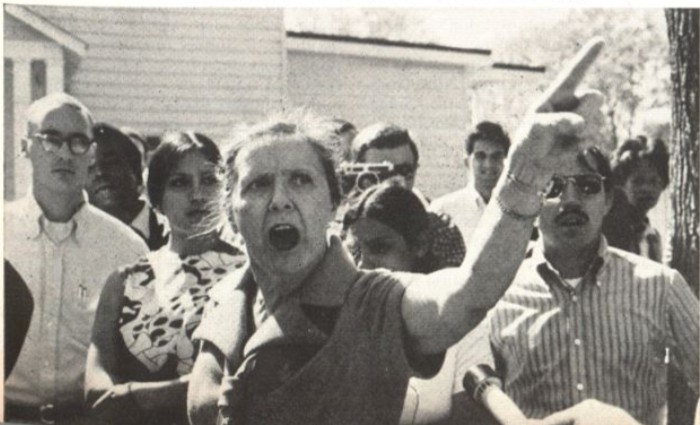
"Protestors at Fort Benning Shouting 'You crucified him!'" TIME Magazine, April 12, 1971, Vol. 97, No. 15, Pg 19

TIME Magazine, April 12, 1971, Vol. 97, No. 15, Pg 13
“Calley, he didn’t kill the 109 all by himself. There was a company there.”
-Herbert Carter, Charlie Company soldier from Houston.
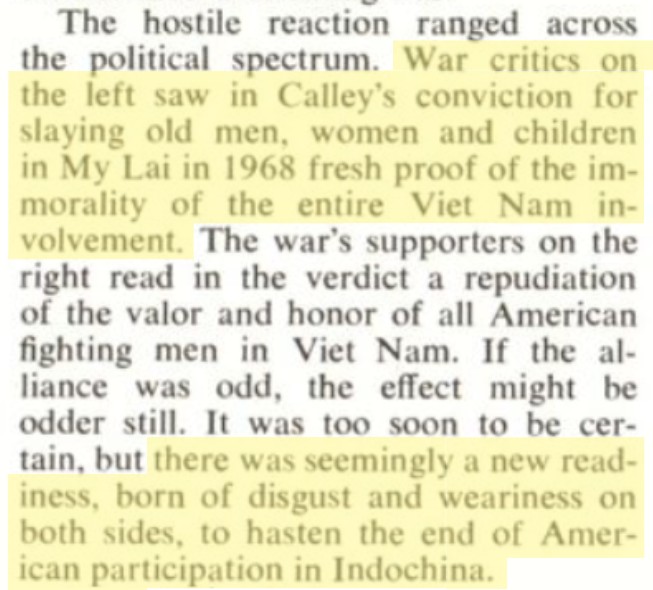
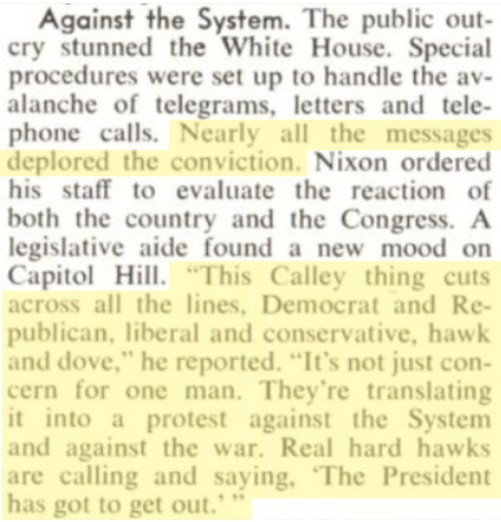
TIME Magazine, April 12, 1971, Vol. 97, No. 15, Pg 13
Under Nixon's orders, Calley’s sentence was reduced to ten years. He was released after three.